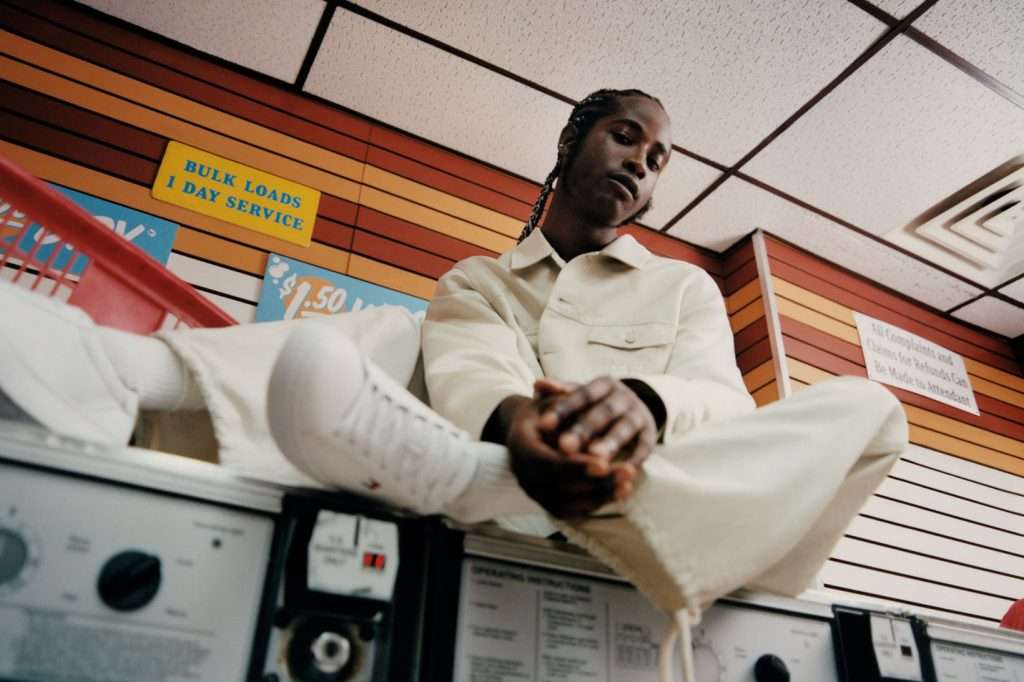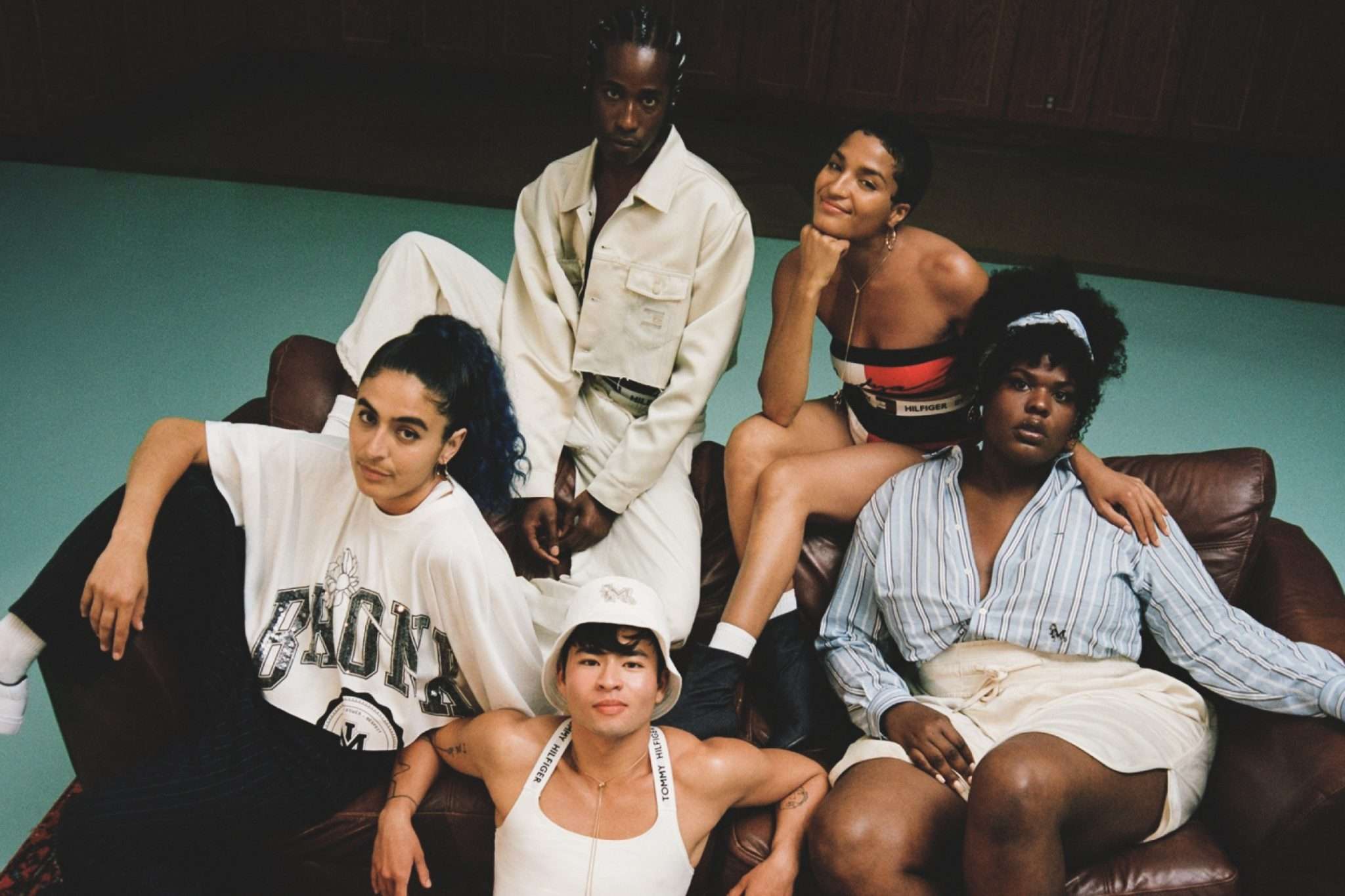The new Tommy Hilfiger capsule collection, TommyxIndya, partners with non-binary actor and activist, Indya Moore.
With neutral cream-colored hues and Hilfiger’s iconic stripes, and some made with sustainable materials such as organic cotton, the newest collection is designed for all body types and gender identities.
“This capsule goes beyond great style,” Moore said in a press release. “It breaks a cycle and sets a new standard across the industry. Too many people are made to feel that something is wrong with them just for being themselves. It means everything to me to know that with our capsule, no one is made to feel wrong or different or broken. Everyone works perfectly for this collection, no matter who they are,” the star of the Emmy-nominated FX series “Pose” added.

‘Breaking Boundaries’
Hilfiger says the collection is just one way the brand “will continue breaking boundaries and making every person feel seen, beautiful, celebrated and accepted exactly as they are.”
Moore brings hometown references to the collection. They hail from the Bronx in New York. The collection also features lotus flowers, symbolizing rebirth and self-realization.
The collection also takes inspiration from Hilfiger’s archives and falls under the Tommy Hilfiger People’s Place Program. That effort raises money for creatives within underrepresented BIPOC communities, including the Rainbow Railroad, Reuniting of African Descants, and the Global Coralition.
TommyxIndya also sees organic cotton make an appearance. The brand has been steadily increasing its commitment to sustainability, pledging to reduce greenhouse gas emissions and employ more eco-friendly materials.

Is Tommy Hilfiger Sustainable?
The Good On You Journal gave Hilfiger an “it’s a start” rating last year for environment and labor efforts, and a “not good enough” rating for animal use.
“[Tommy Hilfiger] uses some eco-friendly materials including recycled materials,” Good On You noted. “It has set a science-based target to reduce greenhouse gas emissions generated from its own operations and supply chain but there is no evidence it is on track to meet its target. It has a policy approved by CanopyStyle to prevent deforestation of ancient and endangered forests in its supply chain. There is no evidence it minimises textile waste when manufacturing its products.”
The platform also flagged its use of animal products despite a formal animal welfare policy. The brand does not use angora, fur, or exotic animal skin, but does regularly feature leather, wool, and exotic animal hair.
Good On You also cites supply chain issues, such as lack of transparency despite the brand’s efforts to improve gender equality, reduce forced labor, and improve wages. But Good On You notes there is “no evidence” of efforts to ensure living wages.
You can shop the TommyxIndya Collection here.
Read more: The 13 Best Sustainable Fashion Brands Turning Deadstock and Organic Textiles Into Luxury Clothes


